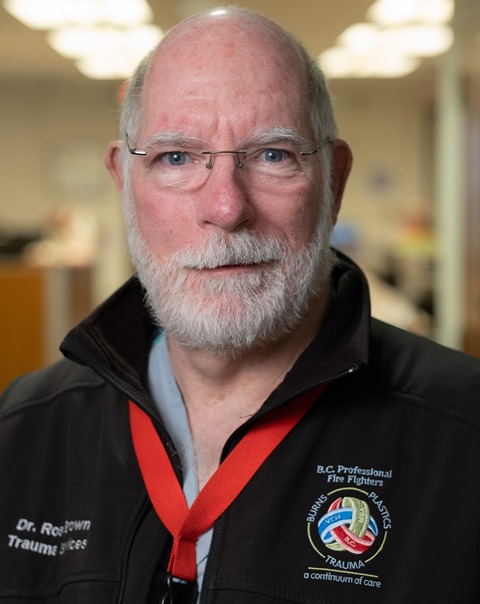By Carrie Stefanson
Canada doesn’t have military hospitals, so it’s important for military doctors to see injuries typical of the battlefield. The Canadian Forces Trauma training program began about 20 years ago, and is instrumental in keeping Canada’s military medical personnel trained in advanced trauma care so they can deploy when needed.
Dr. Philip Dawe heads up Canadian Forces Trauma Training Centre West in Vancouver. He’s a trauma and acute care surgeon at Vancouver General Hospital, who comes from a long military family. His father and three brothers served in the Canadian Forces and his youngest brother Matthew, died in a roadside bombing in 2007. “If I could save one military persons’ life overseas, then my career will be worthwhile,” says Dr. Dawe. “Preventable deaths occur in deployment and if I could prevent one of those it would be a good day.”
Dr. Dawe is the third military surgeon to head up Canadian Forces Trauma Training Centre West. The centre’s mandate is to facilitate trauma training for Canadian Forces physicians, physician assistants, and nursing officers. Many of Canada’s military medical personnel have trained at centres in Vancouver and Montreal prior to their deployments.
“As care for the wounded continues to gain more importance in both public opinion and policy, the mutual benefits of a robust civilian-military relationship have become increasingly evident,” says Dr. Dawe. “On one hand, lessons learned from our overseas experiences are being delivered to our colleagues at home to enhance patient outcomes. On the other, our colleagues at home have helped us to get ready for those deployments by affording us cross-training and refresher opportunities to ensure we’re providing best-possible care to our troops in our limited-resource deployed environments.”
Dr. Ross Brown, trauma physician at Lions Gate Hospital in North Vancouver, was the first embedded military trauma surgeon in Canada and is credited with establishing the program in Vancouver. “It’s a win-win for the health authority to have this additional expertise, as well as the health care professionals who are continuously learning new skills.”
Carrie Stefanson works in communications at Vancouver Coastal Health.




